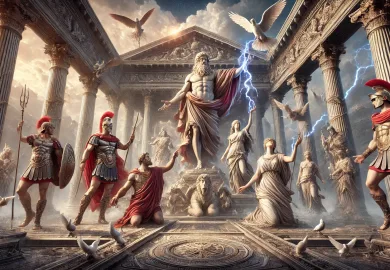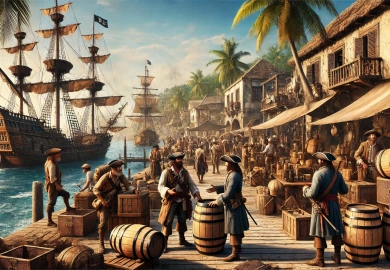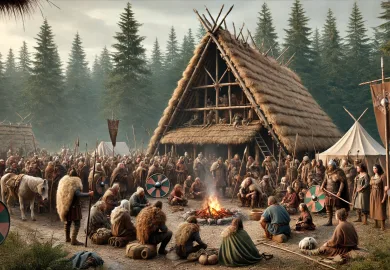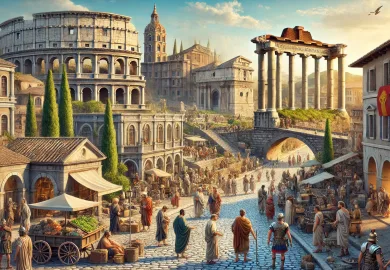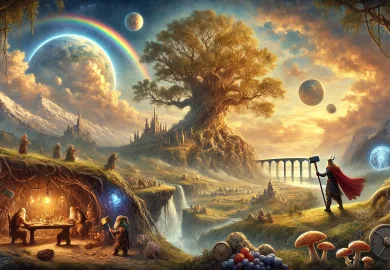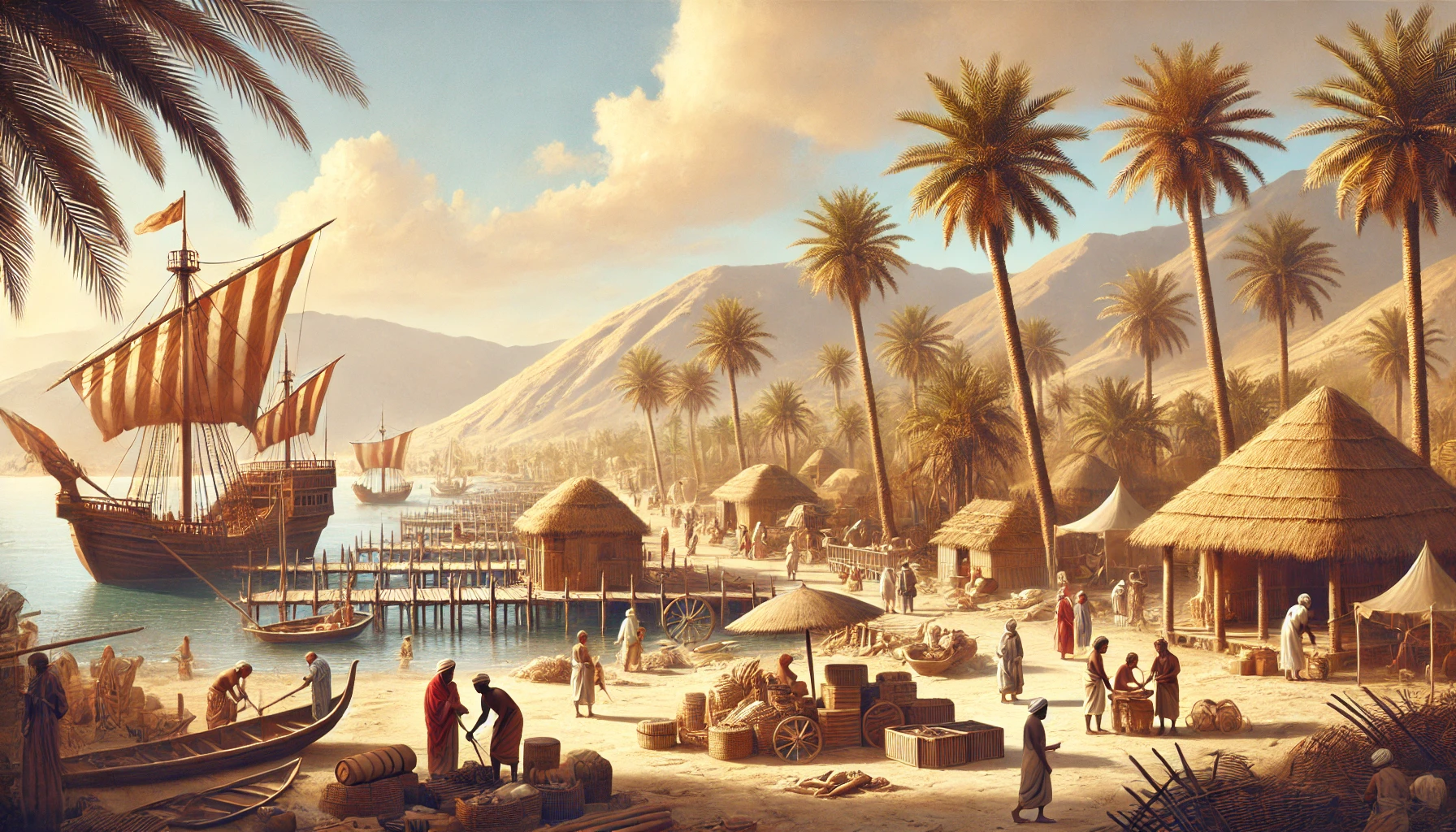
Disclaimer: This content was generated using AI. While I strive for accuracy, I encourage readers to verify important information. I use AI-generated content to increase efficiencies and to provide certain insights, but it may not reflect human expertise or opinions.
The ancient People of Punt have captivated historians, archaeologists, and enthusiasts alike for centuries. Shrouded in mystery, this civilization once thrived in the Horn of Africa and the Red Sea region, leaving behind intriguing clues about their rich culture, expansive trade networks, and deep influence on neighboring empires. The Kingdom of Punt, often referred to as “God’s Land” by the Egyptians, played a crucial role in the ancient world, bridging Africa with the Middle East and beyond.
Their existence, legacy, and cultural practices provide us with invaluable insights into a civilization that excelled in diplomacy, maritime prowess, and craftsmanship, all while maintaining a harmonious relationship with nature. While much about Punt remains a mystery, the evidence we have speaks volumes about their ingenuity and importance in the ancient world.
The Land of Punt: A Nexus of Trade and Culture
The Kingdom of Punt, also known as the “Land of the Gods” in ancient Egyptian texts, was not only a place of myth but a thriving hub of commerce. Though the exact location of Punt has been a matter of scholarly debate, many believe it lay along the coasts of modern-day Somalia, Eritrea, or Sudan. Its strategic position along the Red Sea allowed Punt to become an essential center for trade, connecting Africa to Egypt, the Levant, and even the Arabian Peninsula.
The people of Punt engaged in the exchange of luxury goods that were highly coveted in ancient times. Their major exports included gold, ivory, ebony, and exotic animals like monkeys and giraffes. But perhaps most prized was frankincense and myrrh, aromatic resins that were not only used in religious ceremonies but also had medicinal properties. Egyptian pharaohs frequently sought out these goods to please their gods and maintain their divine status.
Punt’s role as a trade intermediary wasn’t just about material wealth. It allowed them to absorb and influence the cultures they came in contact with. The Puntites were known for their distinct art, architecture, and religious practices, which, although different from Egypt’s, suggest a mutual respect between the two civilizations. The people of Punt were even depicted in Egyptian art as sophisticated, wearing elaborate clothing and jewelry, further underscoring their importance in ancient eyes.
Religion and Spirituality in the Kingdom of Punt
One of the most fascinating aspects of the Puntites was their religious beliefs and practices. While much remains unknown, we can glean certain elements of their spirituality through the few records left by their neighbors, especially the Egyptians. Punt was referred to as “God’s Land,” a title that indicates its deep religious significance. Egyptians considered Punt to be a sacred place, and it was believed to be the land where their gods originated. This made the relationship between Punt and Egypt more than just economic—it was spiritual.
In ancient Egyptian texts, especially during Queen Hatshepsut’s reign, divine expeditions to Punt were depicted not merely as trading missions but as holy pilgrimages. The natural riches of Punt, such as frankincense and myrrh, were believed to have spiritual properties, and Egyptians used these resources to honor their gods. This spiritual connection points to Punt’s revered status, not just in trade, but in the broader religious consciousness of the ancient world.
It is also likely that the Puntites practiced a nature-based religion, which would have been in line with many ancient African societies. Their reliance on natural resources for both trade and sustenance, such as aromatic resins, animals, and precious stones, suggests a culture deeply in tune with the natural world. This relationship with nature may have been central to their spiritual practices, seeing their land as not only a source of wealth but a divine gift that connected them to the cosmos.
Punt’s Advanced Maritime Capabilities: Masters of the Sea
One of the key reasons for Punt’s prosperity was its mastery of seafaring. Being located along the coast, the people of Punt were expert navigators, which allowed them to establish and maintain far-reaching trade routes across the Red Sea and Indian Ocean. Their fleets of large wooden ships, propelled by sails and oars, transported valuable goods to foreign markets, bringing Punt wealth and influence.
Maritime prowess wasn’t merely a function of trade but was deeply tied to Punt’s identity and survival. The ancient Egyptians, who famously depicted their trading expeditions to Punt in detailed reliefs, noted how Puntite ships were not just functional but elegant, suggesting a deep cultural appreciation for their vessels. The ability to navigate the treacherous waters of the Red Sea and beyond required advanced knowledge of tides, winds, and navigation, skills that would have been honed over centuries.
Moreover, Punt’s maritime culture helped foster a cosmopolitan society. As traders from Egypt, the Levant, and the Arabian Peninsula passed through Punt’s harbors, they brought with them ideas, languages, and customs. This constant interaction with foreign cultures allowed the people of Punt to absorb diverse influences, making their civilization a vibrant melting pot of African, Arabian, and Mediterranean traditions. This cultural fluidity helped Punt maintain its relevance in the ancient world for centuries.
The Mysterious Decline and Enduring Legacy of Punt
Despite its once prominent position in the ancient world, the Kingdom of Punt eventually faded from history, leaving behind tantalizing mysteries. By the time of the Roman Empire, mentions of Punt had all but disappeared from historical records. What caused this once-great civilization to decline remains an enigma. Some scholars suggest that environmental changes, such as shifts in trade winds or droughts, may have affected Punt’s ability to sustain its economic dominance. Others propose that political upheavals, either from within or from neighboring kingdoms, could have contributed to its decline.
However, the legacy of Punt endures. Its influence on Egyptian culture is undeniable, with depictions of Punt and its people immortalized in ancient temples and tombs. Furthermore, Punt’s role in the development of maritime trade in the Red Sea and Indian Ocean regions laid the groundwork for future civilizations to flourish. Even today, the descendants of the Puntites, whether in Somalia, Eritrea, or elsewhere in the Horn of Africa, may carry forward traditions passed down from their ancient ancestors.
The study of Punt continues to captivate scholars and adventurers alike. Archaeologists are still piecing together the puzzle of this ancient land, hoping to one day uncover more concrete evidence about the people who once lived there. As more discoveries are made, the picture of Punt as a sophisticated, cosmopolitan civilization becomes clearer, reminding us of the vast and rich history of Africa and the role its civilizations played in shaping the ancient world.

